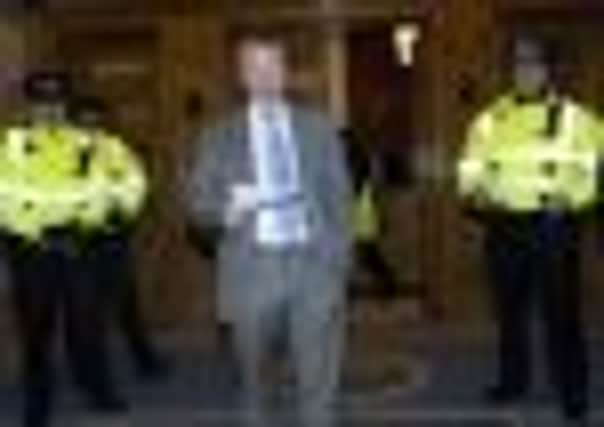John McLellan: Big players should give supporters a sporting chance


Led Zeppelin sang Communication Breakdown more than 40 years ago but that could be the soundtrack to some major events this week.
Topping the list is Craig Whyte, who has more questions to answer about his short tenure at Rangers FC than the Spanish Inquisition ever asked.
Advertisement
Hide AdAdvertisement
Hide AdIt is not as if Mr Whyte is short of advice on dealing with difficulties, being a long-standing acquaintance of crisis management specialist, ex-Scottish Sun editor Jack Irvine. Long before the club imploded, Mr Irvine and his senior associate Ramsay Smith have been on hand to offer guidance at Ibrox. Mr Whyte also calls on the services of Hay McKerron Associates, run by two of Scotland’s most experienced journalists.
And with this on top of the club’s in-house communications team – not forgetting former player and BBC pundit Gordon Smith on the board – there will soon be more PR people in Govan than first team players.
Whether any of them can shed light on why Mr Whyte decided to deploy his business methods on a high-profile institution like Rangers is another thing.
Such communications experts were notable by their absence in another sporting arena, when rugby referee Dave Pearson called off the France v Ireland match ten minutes before kick-off because parts of the pitch had frozen.
Was Mr Pearson made available to explain his decision? Were officials encouraged to take TV cameras on to the pitch to demonstrate just how hard it had become? No. All fans got was an announcement the game was off.
And then on Sunday, at the Millennium Stadium, Scotland were denied a valid try by referee Romain Poite who ruled that 19-year-old test debutante Stuart Hogg had knocked on just before touching down. Poite could have asked the video referee to check Hogg’s catch, but instead he ignored the technology. It wouldn’t have affected the outcome, but a dramatic moment was lost.
What these three events have in common is a disregard for supporters, the people who pay the wages – no audience means no game. Treating supporters with respect is a lesson sports organisations still need to learn.
Craig Whyte has caused nothing but confusion and dismay for those who follow Rangers. Supporters were the last to be considered when scheduling a rugby match for a 9pm kick-off local time, or when calling it off at the very last minute, and there was nothing in Mr Poite’s mind other than imposing his will in chalking off Hogg’s try.
Advertisement
Hide AdAdvertisement
Hide AdBut maybe there wasn’t a communication breakdown in any of these affairs – for to have a breakdown implies a desire to communicate effectively and fairly in the first place.
Clouds over Sun
SENIOR News International staff have fought hard to prevent the News of the World scandal spreading to its sister titles, yet the crisis shows no sign of abating. Now, as Rupert Murdoch flies in to deal with the worsening situation there are claims The Sun was paying some public officials annual retainers of £10,000.
News International journalists are now in virtually open rebellion against the company’s own investigation unit, while former Scottish Sun editor David Dinsmore finds himself thrust into the front line as interim managing editor, which puts him in control of payments to external sources.
With the inducement “We pay cash for stories” until recently in the paper, this is no easy task.
Since the demise of the News of the World, the arrival of The Sun on Sunday has been keenly awaited, with the clever money going on a launch this April. Presumably a decision on whether to press ahead is top of Murdoch’s agenda – the Sunday Mirror, which has picked up 60 per cent of the old NotW readers still buying a paper, will be hoping he pulls the plug.
Eye weathers storm
NO website, no tablet apps, no colour apart from the front and out just once a fortnight, yet Private Eye has just recorded its highest sales for 25 years at nearly 230,000 copies, a stunning year-on-year increase of 10 per cent. Editor Ian Hislop reckons the advertising slump has been good for the magazine because he can publish more jokes. So print is dying? Don’t bet on it.